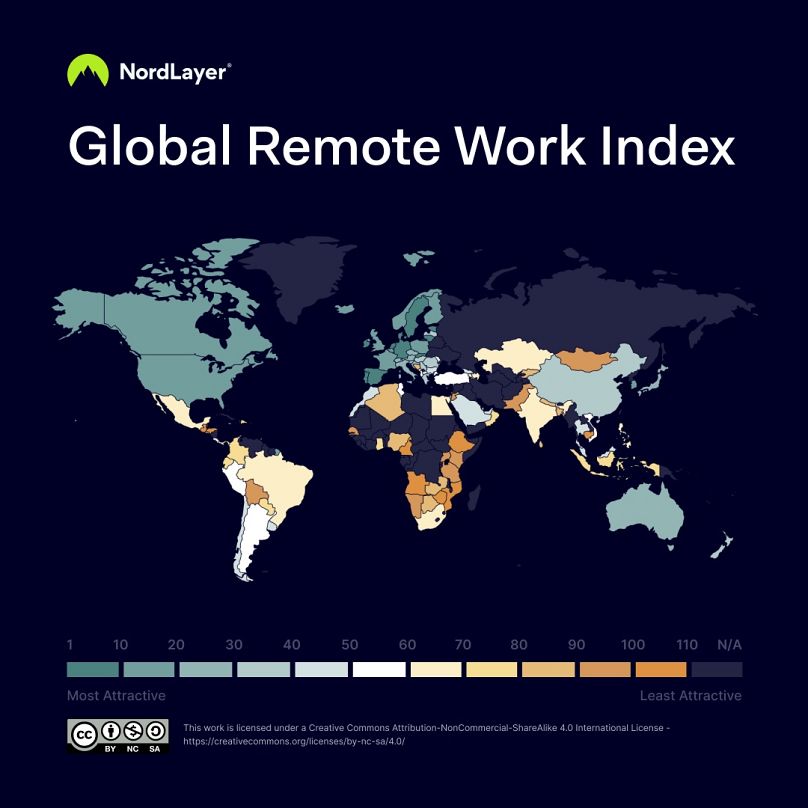A new report rated 108 countries based on societal and infrastructure factors and found that Europe was by far the best place to remote work in 2023.
Thanks to the COVID-19 pandemic, the landscape has completely changed when it comes to our working habits, with hybrid or remote working increasingly becoming a default option for many of us.
A new report by cybersecurity platform Nordlayer has analysed where the best places in the world to be a remote worker are - and found that Europe dominated the board with not only the top 10 spots but most of the top half as well.
The 2023 Global Remote Work Index crunched the data from 108 countries and gave them scores based on how they shaped up based on various criteria, including access to stable, fast Internet connections, socio-economic benefits like healthcare as well as human rights protections.
While it’s true that people’s priorities do not align and what they value most also differs, the study found that Denmark came top overall when scores from the four key categories - cyber safety, digital and physical infrastructure, social safety, and economic safety - were taken into account.
Key findings
While the top ranking was dominated by European countries, it was also noted by the report authors that these countries - including Denmark and the other Nordic countries - were all more expensive to live in.
The one exception was Portugal, which while ranking sixth overall, was much lower down the table (56th) when it came to the cost of living, offering remote workers the best value for money among the European-heavy top 10 countries.
Europe dominates the top spots in the table overall but many of these countries fell down on digital infrastructure with Asian countries in particular excelling in this field.
Singapore took first place in this category, followed by South Korea and the United Arab Emirates. European contenders were marked down for their Internet affordability.
While they were the standout countries in this category and the frontrunners for the continent, Singapore placed 28th overall while South Korea performed better at 17th.
The countries that offered the best economic security for remote workers were led by the anglosphere, such as the United Kingdom, the United States, Australia, and New Zealand. These were closely followed by the larger European economies like Germany and Spain and other outliers like Malta.
What sets the top countries apart?
Consistently voted as one of the happiest places on the planet, Denmark scored highly across all criteria in the report.
Despite an extremely high cost of living (placing 94th) and expensive Internet (42nd), the Danes enjoy very good Internet quality (7th) and were particularly notable for their levels of social inclusion (6th) and social benefits, including healthcare (ranking 3rd).
Societal conditions also ensured the Netherlands' position in second place. It performed particularly highly on social safety (low crime rates and so on), personal rights (3rd), and having an inclusive society (6th).
Combined with fast, stable digital infrastructure and good cybersecurity, these factors assured the Netherlands a close second place in the rankings.
In third place, Germany distinguished itself from the other countries with top billing with the most affordable Internet (1st) and as well as having the strongest legal system (1st).
Given it is Europe's largest economy, it’s hardly surprising that Germany notably offered high economic security for remote workers (6th). However, it was marked down generally in the digital and physical infrastructure category (22nd).




